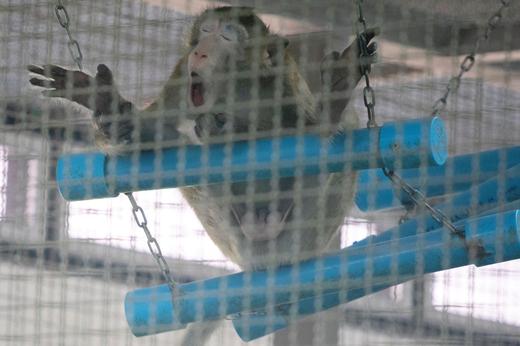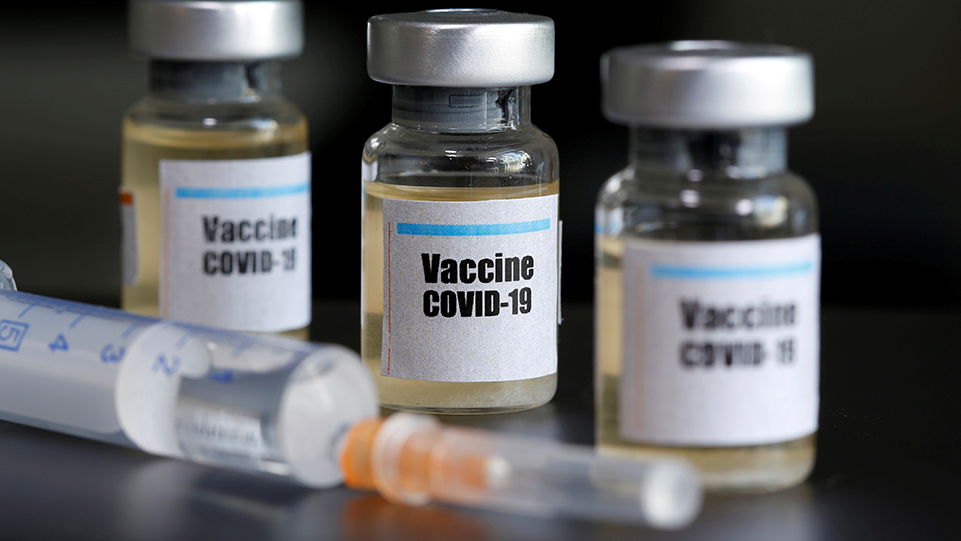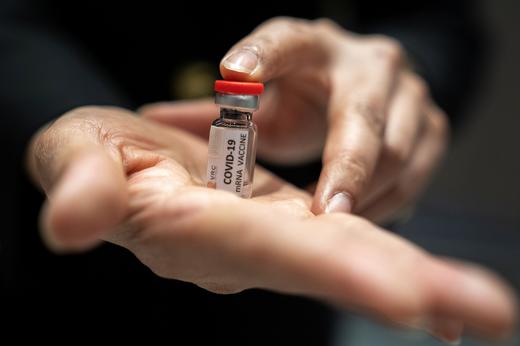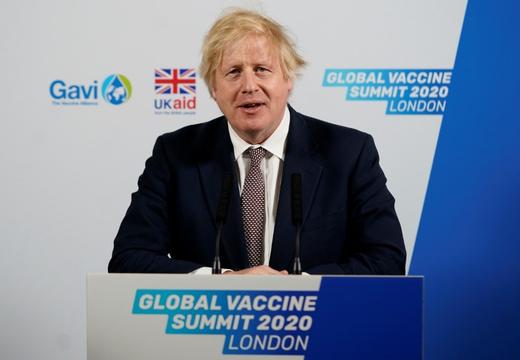This is the 87th article in the COVID-19 Global Roundup series. Here is the previous one.
It is unwise to predict when a vaccine could be ready against COVID-19, Mike Ryan, head of WHO's emergencies program said on Friday. While a vaccine candidate might show its effectiveness by the end of the year, the question was how soon it could be mass produced, he told the Geneva Association of United Nations Correspondents in Geneva.
Regarded as the most effective solution and holding the key to reopening economies, coronavirus vaccines have repeatedly attracted global attention. But, there are many steps before it will be fully useful, so how close are we now to a usable vaccine?

A laboratory monkey used in the development of an mRNA type vaccine candidate for the coronavirus disease at the National Primate Research Center in Thailand. /Reuters
A laboratory monkey used in the development of an mRNA type vaccine candidate for the coronavirus disease at the National Primate Research Center in Thailand. /Reuters
The vaccine race is on
In this race of the vaccine, there is one that has been approved in limited use. In China, the Central Military Commission approved the use of a COVID-19 vaccine co-developed by its research unit and CanSino Biologic, a Chinese vaccine company, after clinical trials proved it was safe and showed some efficacy, the company said in a filing on June 25. The shot also won approval for human testing in Canada.
14:20

Since January, global researchers have been developing more than 145 vaccines to fight against the novel coronavirus and 18 potential candidates are being tested on humans.
The University of Oxford said last Wednesday their COVID-19 vaccine team has seen the right sort of immune response in trials but declined to give a firm time frame for when a vaccine will be ready.
The trials are among many across the world. In India, volunteers will be immunized with a new locally-made coronavirus vaccine in July, according to an India-based firm Bharat Biotech.
Moderna Inc confirmed its plan to start a coronavirus vaccine trial with 30,000 volunteers in July as the company is about to enter the final testing stage. Soon after the announcement, the company's shares jumped by five percent in premarket trading.
Another COVID-19 vaccine developed by German biotech firm BioNTech and U.S. pharmaceutical giant Pfizer has shown potential and was found to be well tolerated in early-stage human trials, the companies announced on Wednesday.
The drug is one of 17 being tested on humans in a frantic global race to find a vaccine to end a pandemic that has infected 10.5 million people and killed more than half a million so far.
Soon after the announcement, the company's shares were up about eight percent after rising as much as 19 percent to reach their highest in more than three months.
Singapore announced on June 16 that scientists were testing a COVID-19 vaccine from U.S. firm Arcturus Therapeutics and plan to start human trials in August after promising initial responses in mice.

An mRNA type vaccine candidate in Saraburi, Thailand, June 2020. /Reuters
An mRNA type vaccine candidate in Saraburi, Thailand, June 2020. /Reuters
From lab to clinic: Risks of accelerated testing
The pandemic has sparked research mobilization. Testing is underway on five experimental vaccines in China and four in the United States.
Normally, it takes years of research and testing before vaccines reach clinics. But with fears that the pandemic could re-intensify anytime, over 140 teams of scientists have been racing to produce a safe and effective vaccine by 2021.
However, the road ahead is uncertain. While 18 potential candidates are being tested on humans, there is still no proven vaccine against the disease now, Ryan said.
The race began in January and the first vaccine safety trial in humans started in March. Some have failed and others ended without any clear results. Only a few succeeded in moving to the next phase.
Normally, researchers would take months testing vaccines in animals. Given the urgency to stem the spread of the new coronavirus, some drugmakers are moving straight into small-scale human tests, without waiting for the completion of such animal tests.
The world's experts have concluded that this accelerated testing is a risk worth taking.
At a specially convened World Health Organization (WHO) meeting in mid-February, designed to co-ordinate a global response to the new coronavirus, scientists representing government-funded research organizations and drugmakers around the world agreed that the threat was so great that vaccine developers should move quickly into human trials before animal testing is completed, four people who attended the meeting told Reuters.
"You want to have a vaccine as quickly as possible," Dr. Marie-Paule Kieny, former assistant director-general at the WHO, who co-chaired the meeting, said. "You have to balance this with the risk that you impose on a very small number of people, and do all you can do to mitigate this risk as much as possible."

British Prime Minister Boris Johnson delivers a speech to the Global Vaccine Summit (GAVI) via Zoom, June 4, 2020. /Reuters
British Prime Minister Boris Johnson delivers a speech to the Global Vaccine Summit (GAVI) via Zoom, June 4, 2020. /Reuters
A two-tiered world
As nations rush to ease lockdown restrictions, concerns over some trying to secure early supplies of vaccines are growing, as this will leave poorer nations behind.
In June, it was reported that the U.S. has bought up virtually all the stocks of the three-month supply of remdesivir. Such unilateral action will also have wilder implications when a vaccine is available.
The buying-up of remdesivir has stirred global debate about equitable access to drugs and treatment, especially in some developed regions where coronavirus infection rates are still high.
"It signals an unwillingness to cooperate with other countries, and this has chilling effects on international agreements about intellectual property rights," said Ohid Yaqub, senior lecturer at the Science Policy Research Unit of Britain's University of Sussex.
Similarly, in May, the French multinational pharmaceutical giant Sanofi provoked uproar when its CEO announced that the U.S. Food & Drug Administration (FDA) regulator had granted a priority review for Sanofi's sutimlimab product, which treats hemolysis in adults suffering from cold agglutinin disease.
(With input from agencies)